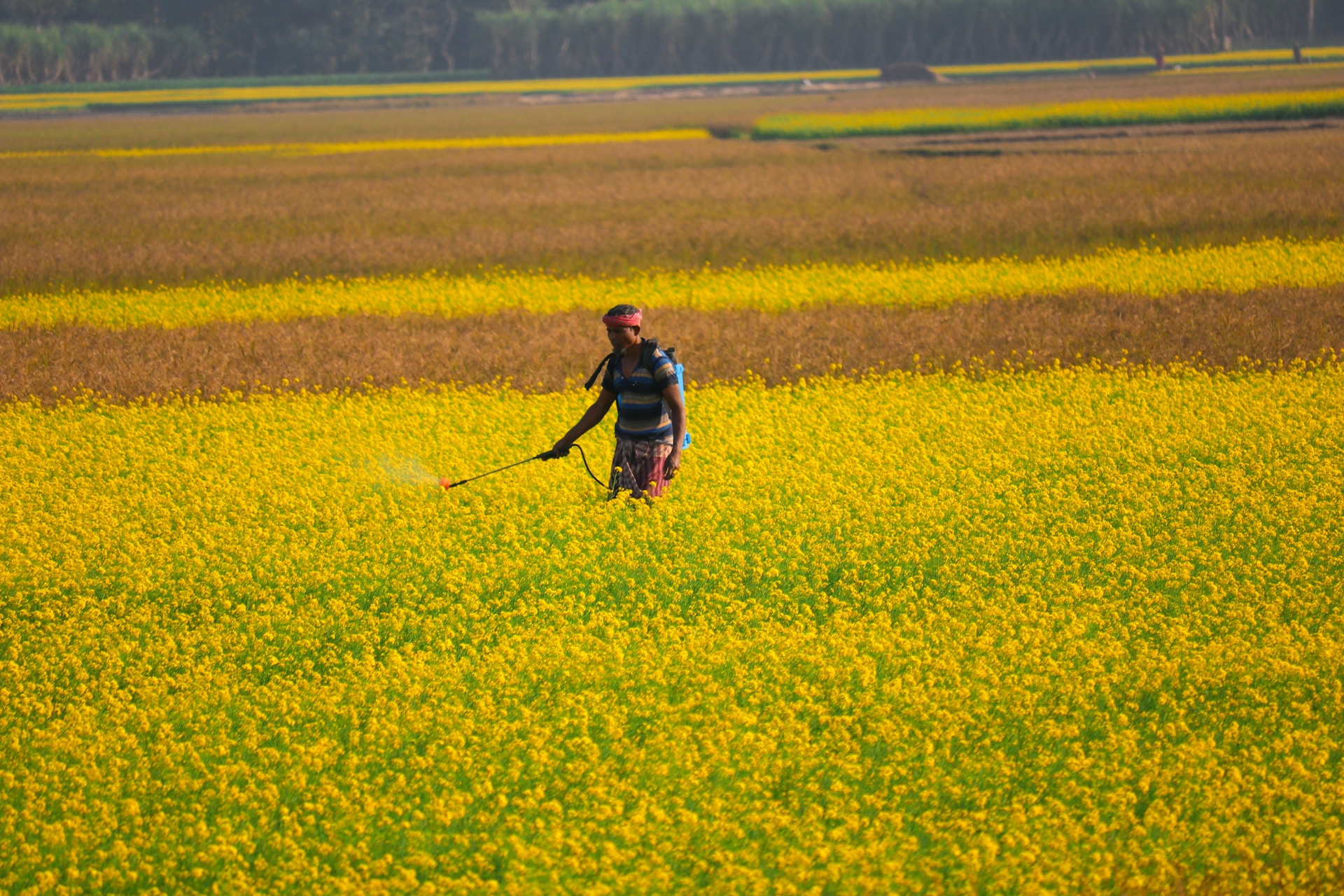The European Union says yes to reducing pesticides (but calmly)

The new regulation within the "From farm to fork" strategy proposed last June by the EU Commission asked farmers in member states to reduce the use of pesticides by 50% by 2030, but now a more bipartisan agreement has been reached flexible. All the details
Reduce the use of pesticides by 50% by 2030. It was the European Commission's proposal in the framework of the new regulation within the "From producer to fork" strategy that had worried and sparked protests among both farmers and Italian politicians of all sides.
Yesterday, however, the Agriculture Committee of the European Parliament approved a more flexible solution.
THE EU AGREEMENT ON PESTICIDES
The pressure from those opposed to the EU Commission's proposal has made it possible to arrive at a new plan: the reduction in the use of pesticides in European fields will in fact take place more gradually. The halving should take place by 2035 instead of 2030 and, in addition, the mandatory reduction targets at the national level of the Member States are lowered to 35%.
Yesterday's vote – with 26 votes in favour, 3 abstentions and 9 against – for the MEP of the Democratic Party and member of the Agriculture and Rural Development Commission of the European Parliament, Paolo De Castro, "demonstrates how when the comparison focuses on the merit of the issues, overcoming ideological positions and useless polarizations, it is possible to reach pragmatic agreements capable of finding a balance between the three levels of sustainability: environmental, social and economic".
“A pragmatic approach which, given the impossibility of reaching a rejection of the proposal, led to predicting a more realistic timetable, with the objective of a 50% reduction at EU level in the use of pesticides set for 2035. Not only that – continues De Castro – the Member States obtain a certain margin of flexibility, with mandatory reduction targets at national level of 35%".
WHY ITALY WAS AGAINST HALVING BY 2030
“We cannot imagine a drastic reduction in pesticides, which serve to stem certain pathologies, and at the same time not find alternative solutions with the risk of favoring nations that use chemical products in exponential quantities compared to us,” said the Minister of Agriculture, of food and forest sovereignty (Masaf), Francesco Lollobrigida.
In fact, what was worrying were the economic consequences. “Commodities, which already grew in 2021, rocketed in 2022: rice (+69%), soybeans (+12%), wheat (+42%), corn (+39%). Inflation weighs on the entire food sector (+13.1% per year) with peaks for pasta (+20%), dairy products (+17.4%) and oil (+16.2%). At the same time, all agricultural sectors are squeezed by the general increase in production costs (+22%), led by the +55% of the energy item", we read in the Comagri report 2022.
Furthermore, according to the president of the CIA, Cristiano Fini , "in the absence of defense against parasites and diseases, a drop of 70% is estimated for durum wheat yields, 62% for oil and even 81% for sauce tomato, 84% for rice and 87% for corn”.
THE EFFORTS MADE BY ITALY
“The negotiations led by my colleague Clara Aguilera (S&D group leader in the Agriculture Commission), whom I thank for the important work carried out – added De Castro -, have led to a change in the reference period for calculating the reduction which better takes into account the efforts already made by some Member States, in particular Italy, in reducing the use of pesticides".
In our country, in fact, according to the MEP, "from the three-year period 2011-2013 (new basis of calculation) to today", farmers "have already reduced the use of chemicals by over 20%". And at the beginning of the year Il Messaggero also stated that "in Italian fields the process of reducing pesticides began some time ago (-38% compared to five years ago) and 45% of products allowed in organic cultivation are used. Already today 2.2 million hectares have been converted to organic farming."
“All this, together with the review clause which will evaluate its feasibility, makes the 2035 objective more realistic and achievable – concluded De Castro -, but only if accompanied by an important effort in innovation, which makes concrete alternatives available for combat plant diseases, starting with TEAs [ assisted evolution techniques , ed. ], the new sustainable biotechnologies".
This is a machine translation from Italian language of a post published on Start Magazine at the URL https://www.startmag.it/economia/lunione-europea-dice-si-alla-riduzione-dei-pesticidi-ma-con-calma/ on Tue, 10 Oct 2023 14:24:12 +0000.
